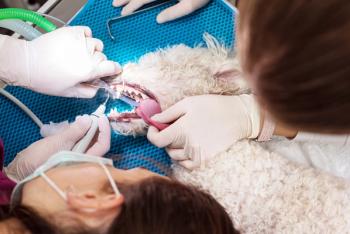
Gulf coast states prepare for oil repercussions
Thirty-two National Wildlife Refuges in Louisiana, Mississippi, Alabama, Florida and Texas have been identified as "at risk" by the U.S. Fish and Wildlife Service since an explosion rocked the Deep Water Horizon oil-drilling platform off the coast of Louisiana April 20.
Thirty-two National Wildlife Refuges in Louisiana, Mississippi, Alabama, Florida and Texas have been identified as "at risk" by the U.S. Fish and Wildlife Service since an explosion rocked the Deep Water Horizon oil-drilling platform off the coast of Louisiana April 20.
Home to dozens of threatened and endangered species like West Indian manatees, whooping cranes, Mississippi sandhill cranes, wood storks and four species of sea turtles, the U.S. Fish and Wildlife Service reports that so far only a few oiled wildlife have been recovered, but they expect that number to increase.
While oil from the Deepwater Horizon spill already has impacted 45 miles of Louisiana's coast, Veterinarian Norm Griggs, of Wakulla County Florida, said thus far the oil slick has spared the panhandle.
According to the National Oceanic and Atmospheric Administration oil plume model, the oil spill was 55 miles southwest of Pensacola, 11 miles from Port St. Joe and 280 miles from Clearwater at the end of May.
"We have seen no confirmed cases of oil-contaminated wildlife at this point," Griggs said. "We hope that continues, but are trying to stay ready to fight back."
Griggs added that a boom project has been approved for the area that will put a chain of floats across about 40 miles of the marsh to protect it from any surface oil that could arrive.
"These things are like a long string of floats, similar to swimming pool dividers, that block the surface debris and oil from crossing except in very rough weather," he said. "It won't be perfect, but hopefully it will hold back oil and allow the skimming operations to collect it."
As for volunteers, Griggs reported that his list now includes more than 10,000 people from all over the country.
"The contributions to the cause have been tremendous," Griggs said. "Even though there is not imminent threat from the oil, the community has sent hundreds of pounds of supplies to help deal with the wildlife that may be contaminated."
Griggs said large numbers of the volunteers are taking the required HAZMAT classes.
"These people have joined together in impressive fashion to do whatever they can to save our marshland," he said. "It is truly incredible."
The American Association of Zoo Veterinarians (AAZV) also has established its own database of volunteers. Biologists, zoologists, veterinarians, veterinary technicians and others with wildlife expertise can register at
Newsletter
From exam room tips to practice management insights, get trusted veterinary news delivered straight to your inbox—subscribe to dvm360.




